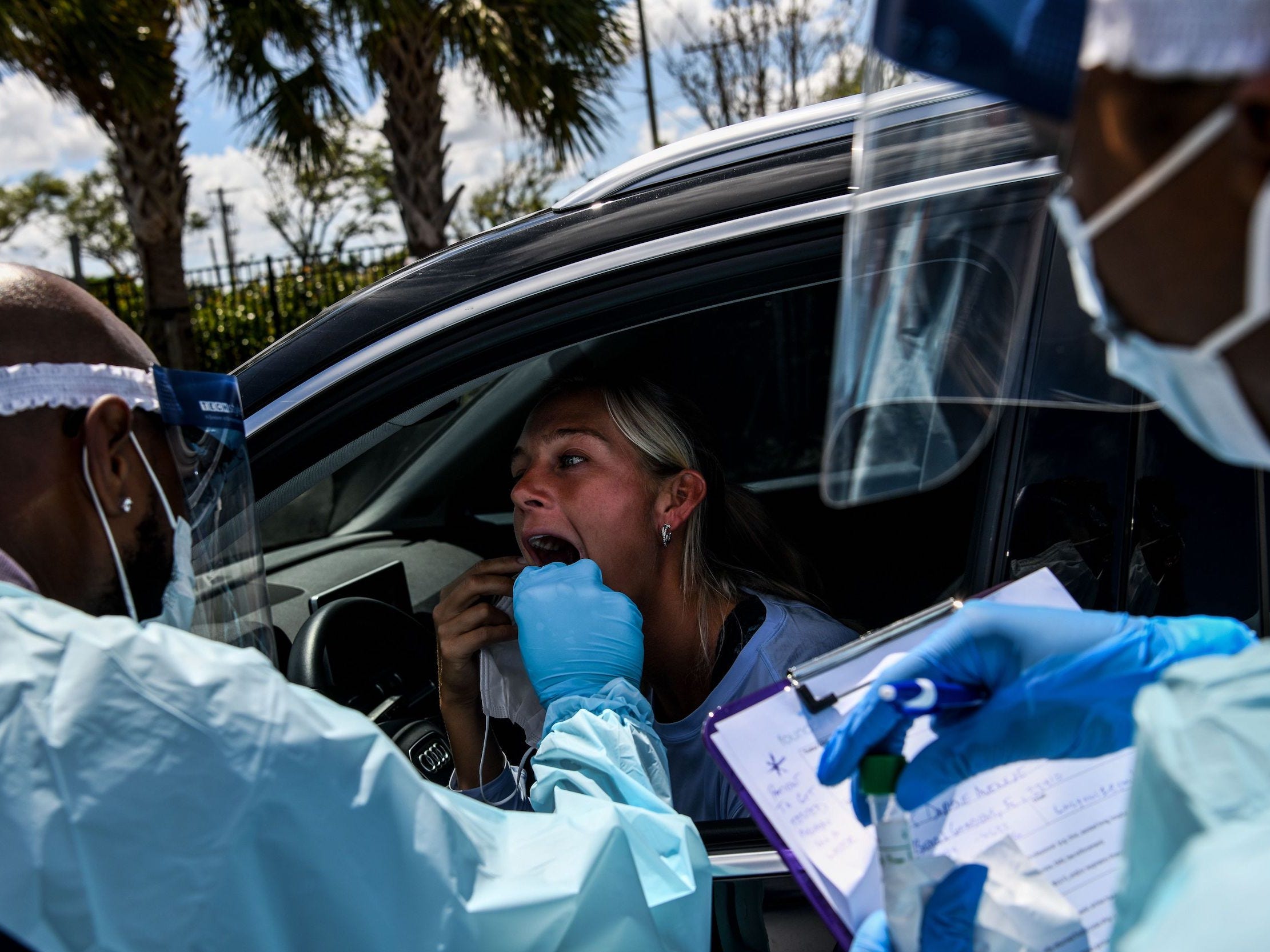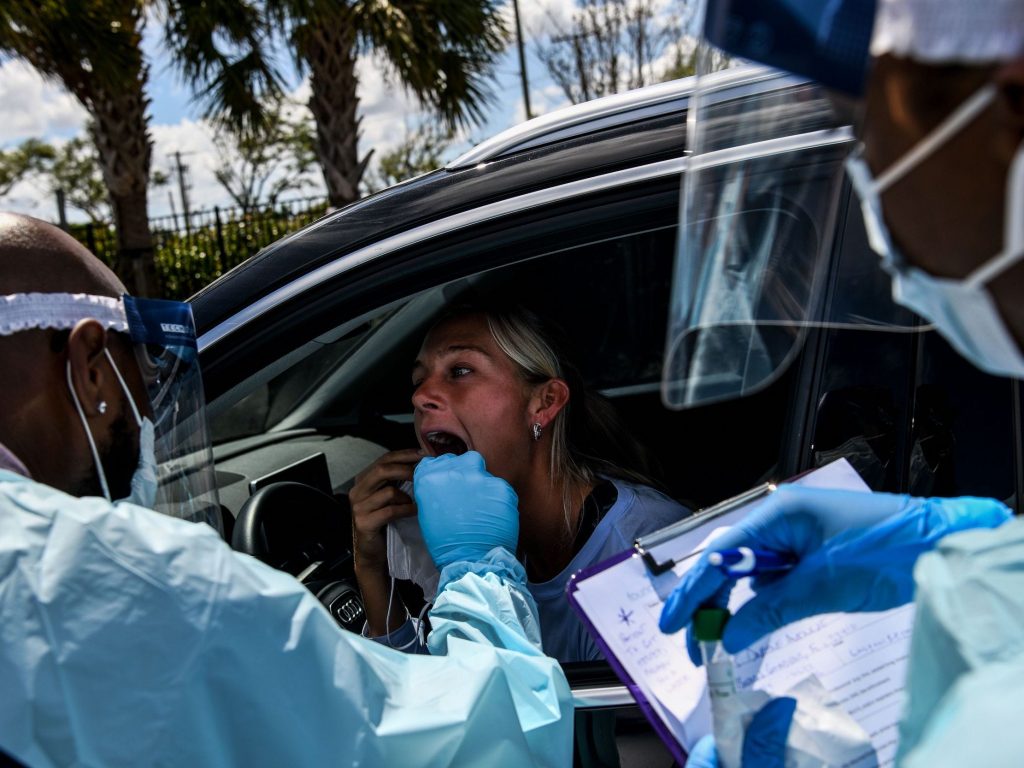
CHANDAN KHANNA/AFP via Getty Images
- A third of new US COVID-19 cases over the past week were in Texas and Florida, the White House said.
- The highly infectious Delta variant accounts for more than 80% of new cases in both states.
- Jeff Zients, a White House official, said getting vaccinated was the best way to stop the spread.
- See more stories on Insider's business page.
A third of all US cases in the past week were in two states – Texas and Florida.
That's according to Jeff Zients, coronavirus response coordinator at the White House, who said Tuesday that "one in three cases nationwide occurred in Florida and Texas, this past week."
The US recorded 598,214 new cases over the past seven days, according to Johns Hopkins University.
Texas recorded 68,525 new weekly cases on Tuesday. Florida recorded 110,724 new cases during the same period, according to Johns Hopkins University, for a combined total of about 180,000.
Florida's weekly tally is just short of its record high for the entire pandemic, of 111,574 cases over a week in January.
Zients said in the briefing that the White House remained "concerned" about the rise in cases driven by the Delta variant. Delta is at least 50% more infectious than the formerly dominant Alpha variant, and has mutations that help it to avoid the immune response.
It now accounts for more than 80% of new cases in both Florida and Texas, according to Scripps' University Outbreak.info, which uses Centers for Disease Control and Prevention (CDC) data.
Zients said that COVID-19 vaccines were the "the tool that is most important." Cases were "concentrated in communities with lower vaccination rates," he said.
In Florida and Texas, 50.4% and 45.1% of the population are fully-vaccinated respectively, compared to the national average of 49.7%.
For comparison, about 68% of people in Vermont and Rhode Island are fully-vaccinated, according to Johns Hopkins University.
Zients added that the seven states with the lowest vaccination rates - representing 8% of Americans - accounted for more than 17% of cases.
As of Tuesday, the states with the lowest vaccination rates were Alabama, Mississippi, Wyoming, Arkansas, Louisiana, Georgia, Tennessee, and Idaho, according to Johns Hopkins University.
The seven states with the highest number of new daily cases per 100,000 people were Louisiana, Florida, Arkansas, Mississipi, Alabama, Missouri, and Oklahoma, according to Covid Act Now, which mostly uses CDC data.
Zients said that "there are still about 90 million eligible Americans who are unvaccinated, and we need them to do their part."
They should "roll up their sleeves and get vaccinated," he said.

